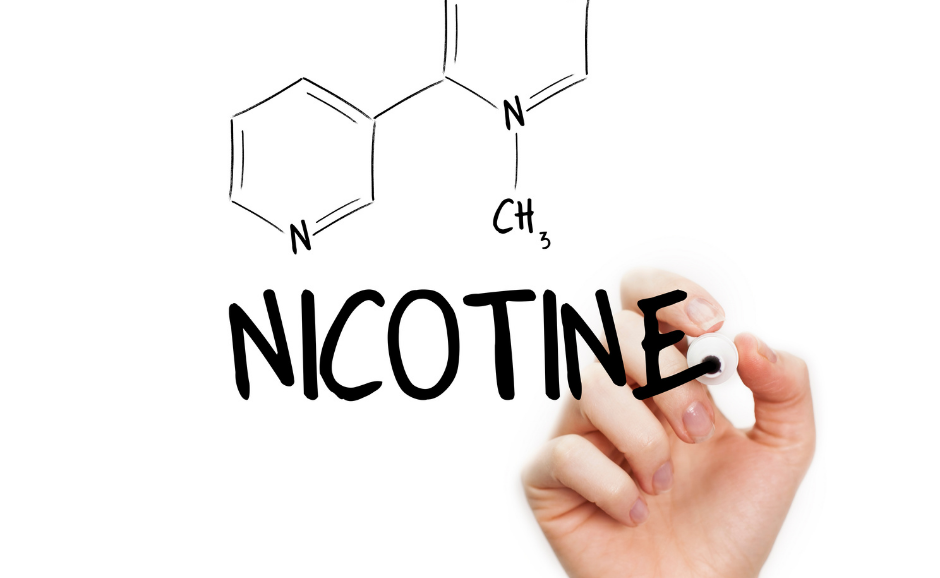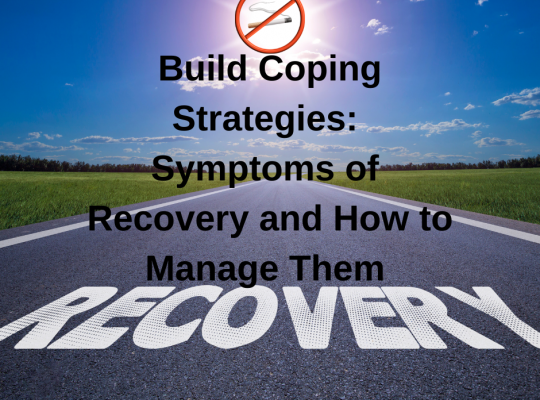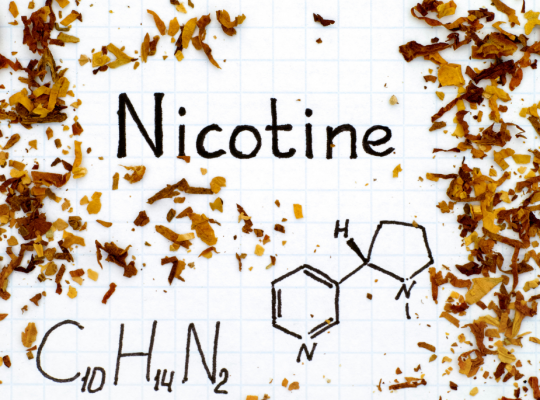“NICOTINE”: Suppose they remove the nicotine in smoke entirely. There are over 7,000 compounds in tobacco, but only one is responsible for a person continuing to smoke. In that case, a smoker (nicotine addict) would lose the desire and need to smoke, just as a person living with alcoholism would lose the desire and want to drink beer, wine or spirits if the alcohol were to cut out entirely. And this is the only reason you continue to smoke and are addicted to nicotine.
How does this nicotine substance make a person repeatedly return to tobacco despite the long list of potential consequences of continued use? Read on to find out.
Why Does Nicotine Addiction Happen
Below is a scientific summary of nicotine addiction.
•Tobacco leaves naturally contain nicotine, and when they burn, the nicotine is released naturally from the tobacco leaves. And when a person lights a cigarette, the tobacco leaves and other added compounds reach 900°C, and the gases and particles become removed. The smoke is particles that you can see, and the total of these particles is called tar.
Over 7,000 identified compounds have been found in the tar and gases released from burning tobacco.
•About 69 of these compounds are known to cause cancer, and many are toxic. Nicotine itself does not cause cancer which most experts agree with, and is relatively harmless to health in the amounts found in cigarettes. However, it is the primary substance in cigarettes that causes addiction. It is the only substance that keeps a person coming back to tobacco every time.
•When you Inhale, cigarette smoke contains nicotine that quickly reaches the brain via the lungs.
When a person inhales, the nicotine from the burning tobacco enters the lungs, is absorbed into the bloodstream, and transported straight to the brain within 8 seconds. The nicotine leaves the bloodstream and “bathes” the brain’s cells.
•Brain cells communicate through the neurotransmitter’s body’s chemical messengers.
•To fully understand how nicotine addiction affects the brain cells, we need to look at how it all works. Your brain is constructive of billions of nerve cells, and they communicate with each other by releasing chemical messengers called neurotransmitters. Each neurotransmitter fires an electrical impulse signal to a receptor located on the surface of neurons. When the neurotransmitter finds its receptor, it activates the receiving cell, like a key in a lock. Nicotine has a molecule shaped like a neurotransmitter called acetylcholine. Acetylcholine and its receptors are associated with memory, muscle contractions, learning, breathing and heart rate. Acetylcholine also can cause the release of other neurotransmitters and hormones known to affect your mood, appetite, memory, and more. When nicotine gets into the brain, it upsets the way neurons usually work. And it attaches to acetylcholine receptors and starts to mimic the actions of acetylcholine.
•The body breaks down the nicotine; levels in the blood and brain drop, and the brain becomes “unhappy.”
The body recognises nicotine as a foreign substance. The liver breaks down nicotine circulating in the blood into eliminated compounds in the urine.
•Once a person puts out a cigarette, the level of nicotine in the blood (and the brain) decreases. Resulting in a decrease in the stimulation of the pleasure/reward centre of the brain, and the person will begin to experience negative emotions such as irritability, agitation, anxiety, and sadness. Because the smoker doesn’t enjoy this negative state of mind, as it builds, they reach for a cigarette, take a few puffs, and stimulate the pleasure centre. These negative emotions are only relieved for a short period until nicotine levels drop again after extinguishing the cigarette. It is essential to understand that once this vicious cycle has begun, the smoker does not smoke to create pleasure; instead, They will smoke to relieve negative emotions. In reality, smoking does not create a “high”; it temporarily removes a low!!!
https://www.facebook.com/groups/quitsmokingsupportcommunity



